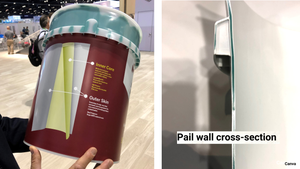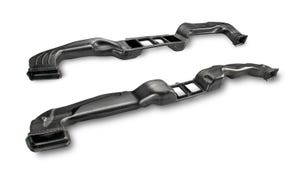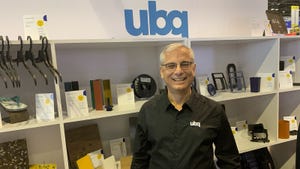Consolidations hit the moldmaking industry
May 19, 1999
We’ve long heard about consolidations in the custom injection molding business, driven by economic factors. Now, consolidation is hitting the moldmaking industry in the form of joint ventures and acquisitions for many of the same reasons. Economies of scale and increased demand from OEMs dictate that shops have the financial, technical, and human resources to meet demands.
Two recent consolidations involve U.S. and Canadian moldmaking companies. The first is a joint venture between Dollins Tool Inc. (Independence, MO) and Glendan Mould Inc. (Rexdale, ON). Jan Klestinec, president of Dollins, says the two companies have worked together for the past four years. The relationship was formalized recently.
Klestinec says the joint venture plays on the individual strengths and capabilities of each company. Dollins operates with 35 moldmakers on two shifts, and has complete mold testing capabilities. It also designs and builds multi-cavity, high-speed stack molds for food packaging and medical disposable applications. Since Glendan builds similar molds, the companies can share expertise, technology, and capabilities while gaining much needed capacity.
“It gave us a 30 percent increase in mold capacity immediately,” Klestinec says. “It also opens a door to the Canadian market and helps us better serve our customers in Canada.”
Elsewhere, Tradesco Mold Ltd. (Toronto) combined forces with Fairway Molds Inc. (Los Angeles). The new company, StackTeck Systems Inc., is 80 percent owned by Castle Harlan Partners II L.P. and 20 percent owned by Tradesco and Fairway management.
David Brown, president of Tradesco, now heads StackTeck Systems. Castle Harlan provides the financial backing and expertise while the business planning and strategies are done at the Tradesco level. Each operating division works autonomously yet cooperatively, says Brown, to help smooth out what is typically a very “lumpy” business.
“If company A is slow, companies B, C, and D might be really busy and offload some work to company A,” says Brown. “The whole organization can flatten out the curves. It takes the sleepless nights away.”
Feast or Famine
Brown agrees there are far too many mold shops in North America, creating fierce competition, particularly among the smaller shops that struggle at the lower end of the spectrum. Consolidations through acquisitions or joint ventures give smaller shops more strength to weather down times and more clout with customers.
Moldmaking is a feast or famine business that affects all mold shops, big or small. “It’s one of the lumpiest businesses I’ve ever seen,” Brown says. “[Business] can turn on a dime. I know of no trade or industry with such huge swings from good to bad.”
With the market continuing to be soft, as it has been for almost a year, it is almost certain there will be some fallout for weaker companies. As the weak go by the wayside, strong companies will become stronger through JVs and acquisitions.
Although pricing will always be an issue, even in larger mold shops, Brown says there is value added at StackTeck in that the operating divisions can offer an entire spectrum of services from concept to finished product. “We can attract larger OEMs with the big projects and offer the customer something he can’t get with smaller shops. In that respect, size helps. We hope to have another acquisition within 4 to 6 months,” notes Brown, “with another shop to bring yet another specialized niche into the fold.”
Do larger mold companies get paid better for this range of services? “Not as much as I’d like,” says Brown. “I don’t think OEMs understand the value-add of the moldmaker. They don’t grasp how difficult the business is.”
Brown says StackTeck’s goal is to create a matrix of highly specialized mold shops with controlled organic growth by supplying their industry niche while also being linked together in ways that allow each to be stronger. This involves trading technical information, obtaining better pricing in buying steel and supplies, and joint marketing efforts.
Strength is what Dollins’ Klestinec is counting on in his joint venture with Glendan. “We’ll be stronger together than separately,” he says. “If you want to do business in certain countries, you’d better have operations there. [Customers] like to see faces and get quick responses, not just a voice mail message.”
Will consolidation in the moldmaking industry pick up steam? “I think so, but we’ll see more of it in some areas than others,” says Brown. “Many shop owners are getting to the point where they want to retire, but . . . these moldmakers are a proud people with big egos who are extremely bright and creative. They want to make sure the product is right even before worrying about the bottom line. They want to do things their way and will not consolidate because they don’t want to give up their autonomy.”
You May Also Like


